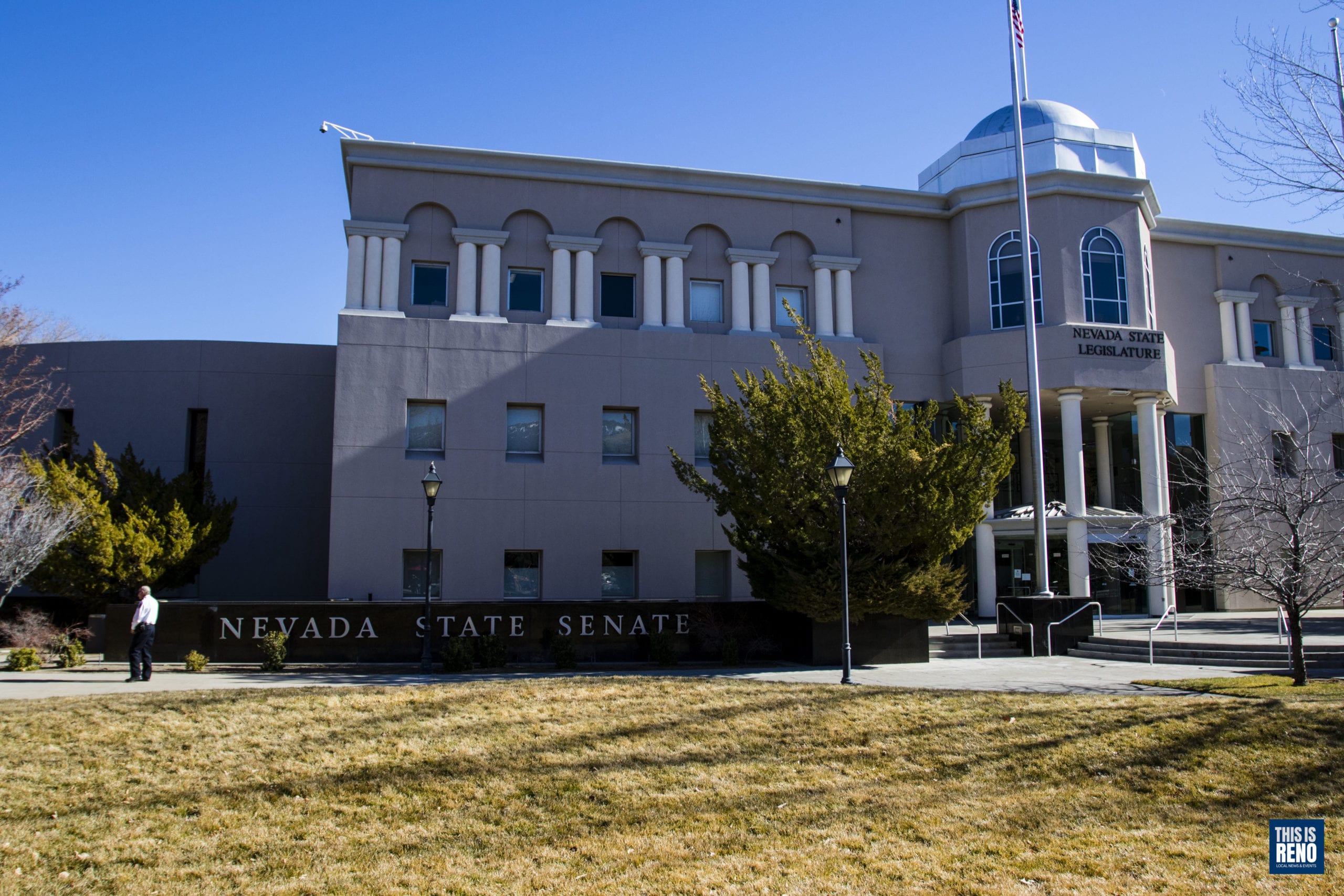A measure that would allow the Nevada Legislature greater control over the Nevada System of Higher Education (NSHE) has survived last Friday’s deadline for legislation to pass out of committees.
Senate Joint Resolution 7 would remove NSHE’s board of regents from the Nevada Constitution and place it under the control of the Legislature. Proponents of the resolution say it would bring the board of regents in line with other boards around the state, the structures of which are determined by the legislature.
This is not the first attempt to strip the board of regents of its constitutional status. Voters narrowly defeated a similar measure, Question 1, in November of 2020. Proponents of SJR 7 have pointed to the narrow defeat of Question 1 as among the reasons for introducing the new resolution.
If SJR 7 passes this session, it would still have to pass again during the 2023 legislative session before going on the 2024 general election ballot.
During committee hearings on the resolution, Senator Marilyn Dondero Loop—who co-sponsored the legislation with Assembly member Tom Roberts—stressed that the board of regents would still be elected but that the board would “be subject to the people’s legislative check of accountability through legislative oversight.”
“This higher education system belongs to all Nevadans,” she said. “It is our collective investment in the future of our state.”
Oversight needed, legislators say
Dondero Loop has said during committee hearings on SJR 7 that the only reason NSHE was given constitutional status in the first place was to meet the original requirements of the Morrill Act of 1862 to access land grant funding from the federal government.
The resolution specifically points to what its authors say is NSHE’s “defensive shield and cloak against the people’s legislative check of accountability.” It also notes “cases before the Nevada Supreme Court [where] the Board of Regents has asserted that its ‘unique constitutional status’ gives it ‘virtual autonomy and thus immunity’ from particular laws and policies enacted by the Legislature.”
SJR 7 indirectly refers to myriad issues going back years, say lawmakers, who’ve accused NSHE of defensively invoking its independence in the face of legislative accountability. But NSHE has done more than that.
Investigative reporting done in 2016 by Bethany Barnes, who then worked for the Las Vegas Review-Journal, found that NSHE had been actively working to undermine the Legislature’s efforts to overhaul higher education funding models and had even written its own memo to give to legislators—passing it off as the work of its Colorado-based research consultant National Center for Higher Education Management Systems.
SJR 7, if passed, would “allow the Legislature to exercise the full extent of its legislative power to review, reform and improve the programs and operations of the State University and, in doing so, the Legislature will also have more options and greater flexibility to review, reform and improve all other institutions, programs and operations of the Nevada System of Higher Education.”
Former Senator Warren Hardy, now a lobbyist, also presented on the bill during committee hearings.
“While the Nevada Constitution requires the Legislature to provide financial support for the operation of our universities, it also directs the board to control and manage the funds of the state university [system]. This divide between the Legislature’s constitutional power to fund higher education and the board’s constitutional power to direct how these funds are actually spent gives the board virtually unparalleled power within state government to control and manage higher education spending … without the same level of legislative oversight typically applied to other executives branches of agencies.”
Mixed response from higher ed
SJR 7 is supported by such entities as the Las Vegas Chamber of Commerce, as well as many faculty members and students at the University of Nevada, Las Vegas. It is opposed by others, including the Nevada Faculty Alliance, Eureka County and the Nevada State Education Association. In an interview April 9 with This Is Reno, University of Nevada, Reno President Brian Sandoval said his institution was neutral on the measure.
Mark Doubrava, who is the current chair of the board of regents but provided opposition testimony as a private citizen on SJR 7, said, “The constitutional amendments presented by Question One sought to change 156 years of Nevada history. The people of Nevada rejected those changes. This occurred only four months ago. Our Democracy mandates that the collective wisdom of the voters be respected.”
The next deadline the resolution will face is April 20, when legislation needs to pass out of the chamber in which it was introduced and move on to the next—in this case, passing from the Senate to the Assembly.

